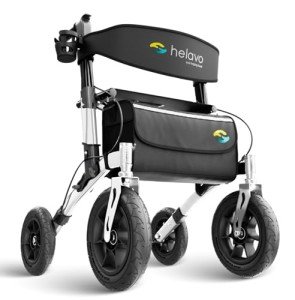17 Signs You Work With Durable Walker
페이지 정보
작성자 Brittany 작성일 25-10-03 23:47 조회 3 댓글 0본문
Choosing a Durable Walker: Your Guide to Enhanced Mobility and Independence
Browsing life's everyday challenges can become progressively difficult as we age or face health concerns that restrict mobility. For many, a durable Modern Walker can be a game-changer-- offering not just physical support but likewise improving confidence. This article will explore the numerous kinds of durable walkers available, their key features, maintenance pointers, and how to pick the best walker for your needs.
What is a Durable Walker?
A durable walker is a mobility aid created to supply stability and support for people with limited motion capabilities. Unlike basic walkers, durable walkers are developed with robust materials and engineering created for frequent usage, making them perfect for users who need a reliable aid for everyday activities.

Kinds Of Durable Walkers
When choosing a durable walker, it's vital to understand the different types available. Below is a table detailing common kinds of durable walkers, their features, and ideal usage cases.
| Kind of Walker | Features | Perfect For |
|---|---|---|
| Standard Walker | Lightweight, non-wheeled design, adjustable height | Individuals requiring basic support |
| Wheeled Walker | Two front wheels, braking system | Users requiring extra mobility in the home |
| Heavy-Duty Walker | Tough frame for much heavier weight capability | Obese individuals or those with higher mobility requires |
| Modern Rollator Walker Walker | Four wheels, seat, hand brakes | Users looking for resting alternatives during walks |
| Folding Walker | Retractable design for easy transport | People who take a trip often or have actually limited storage |
| Knee Walker | Knee support for non-weight-bearing legs | People recuperating from foot or ankle injuries |
Key Features to Consider
When choosing a durable walker, a number of features need to be considered to ensure it meets your specific requirements. Below is a list of important features:
- Weight Capacity: Ensure the walker can support the user's weight safely.
- Height Adjustability: Look for walkers with adjustable heights to offer proper ergonomic support.
- Material: Aluminum walkers are Lightweight Walker and sturdy, while steel walkers offer added sturdiness.
- Wheels: Consider walkers with wheels for much easier maneuverability if the user is mobile enough.
- Grip Handles: Ergonomically designed grip manages enhance comfort and stability.
- Storage Options: Many walkers come with connected seats or storage bags for convenience.
- Braking System: Essential for wheeled walkers to guarantee stability during use.
Benefits of Using a Durable Walker
Buying a durable walker features many benefits. Here are a couple of:
- Increased Stability: The main function of a walker is to offer support and stability.
- Boosted Confidence: Using a walker can assist users feel more secure in moving their environment.
- Improved Mobility: Walkers can help individuals preserve mobility and independence.
- Minimized Fatigue: A walker reduces tension on joints and muscles during motion.
- Improved Posture: They often promote better posture and positioning, which can reduce neck and back pain.
How to Maintain Your Durable Walker
To guarantee the longevity and safety of a durable walker, routine maintenance is important. Here are some ideas:
- Check for Damage: Inspect for any fractures or loose parts regularly.
- Clean Regularly: Wipe down deals with and frame with a mild cleaner to keep it hygienic.
- Lube Wheels: For wheeled walkers, apply lubricant to avoid squeaking and guarantee smooth motion.
- Height Adjustments: Periodically check if the height is still ideal and adjust appropriately.
- Tighten up Screws: Regularly examine screws and bolts to guarantee they are tight and secure.
Frequently Asked Questions (FAQs)
1. How do I know which kind of walker is best for me?
Selecting the right walker depends upon your particular mobility needs, weight capability, and comfort preferences. Consulting with a health care specialist can supply personalized insights.
2. Can I use a walker on irregular surface areas?
While lots of toughness walkers are developed for different terrains, it's a good idea to use them on flat surfaces when possible. Search for walkers with bigger wheels for much better Top Performance Rollator on uneven surfaces.
3. Are there walker's covered by insurance coverage?
In numerous cases, Medicare and other insurance strategies cover durable walkers with a health care provider's prescription. Check with your insurance coverage business for specific information.
4. Can walkers be used outdoors?
Numerous durable walkers appropriate for outdoor usage. Nevertheless, picking one with larger wheels and good suspension will enhance the experience on irregular surfaces like grass or gravel.
5. Just how much weight can a heavy-duty walker support?
Heavy-duty walkers generally support in between 300 to 600 pounds, depending on the design. Always check the manufacturer's requirements.
A durable walker can substantially improve the quality of life for individuals with mobility difficulties. By understanding the different types, features, and maintenance standards, users can make an educated choice that best meets their requirements. With the ideal Medical Walker, people can regain mobility, self-reliance, and confidence in their lives. As always, consulting with a healthcare professional for personalized recommendations is motivated to guarantee the very best fit for mobility requirements.

댓글목록 0
등록된 댓글이 없습니다.

